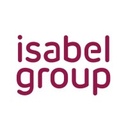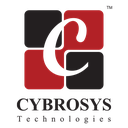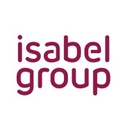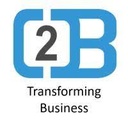-
Opening Keynote - Unveiling Odoo 17
Fabien PinckaersHoàn tất
-
Keynote - Vision & Strategy
Fabien PinckaersHoàn tất
-
Database locks in Odoo
Fayolle AlexandreHoàn tất
-
Transforming Real Estate Management: The Palm City Residences Odoo Success Story
Ghaith Sadok ammarHoàn tất
-
OdooGPT: LLMs based on ChatGPT Trained specifically for Odoo Customers, Consultants, Developers and Partners
Sohel MerchantHoàn tất
-
How-to: From Netsuite to Odoo
Marek ZádaHoàn tất
-
IFRS - Odoo: Presentation and Consolidation of Financial Statements as per requirements of IFRS using Odoo Apps
Shahzad IqbalHoàn tất
-
Embracing Change: Embark on the Convidencia's Journey to Odoo 16 Deployment
Ingrid FévrierHoàn tất
-
Go Fresh x Odoo - Growth on the Horizon
Hassan YousufHoàn tất
-
From Frost to Future: Unfreezing Innovation in Vegetable Production and Transport with Odoo
David JoachimHoàn tất

Odoo consultant and developer, Founder and CTO of ERPGAP
Odoo implementation and development specialist since 2010.
ERPGAP is Odoo ready partner on the US and UK and has Odoo projects across the globe.
How to implement a headless eCommerce using Odoo and Nuxt.js framework using Redis server as cache for improving performance and keeping separation of concerns.
Headless commerce, also known as "decoupled commerce," is a relatively new approach to eCommerce that has been gaining popularity in recent years.
This allows for greater flexibility and customization of the customer experience, as well as improved scalability and performance.
One of the main benefits of headless commerce is that it allows businesses to create a more personalized and engaging customer experience. With headless commerce, the frontend can be completely decoupled from the backend, allowing businesses to make changes and updates to the customer-facing part of the website without having to worry about the technical details of the backend.
Using Odoo as a backend, the Nuxt.js application will fetch full html and GraphQL queries and will store them in a Redis cache making the system easier to scale and still keep the advantage of having all data stored in Odoo



































![GLOBAL CREATIVE CONCEPTS TECH CO LTD [ iWesabe ]](https://odoocdn.com/web/image/event.sponsor/2232/image_128/GLOBAL CREATIVE CONCEPTS TECH CO LTD %5B iWesabe %5D?unique=cf3e01f)













?unique=c0d1cff)









































?unique=cda5e59)








?unique=1da6f7d)




?unique=1059ac2)






